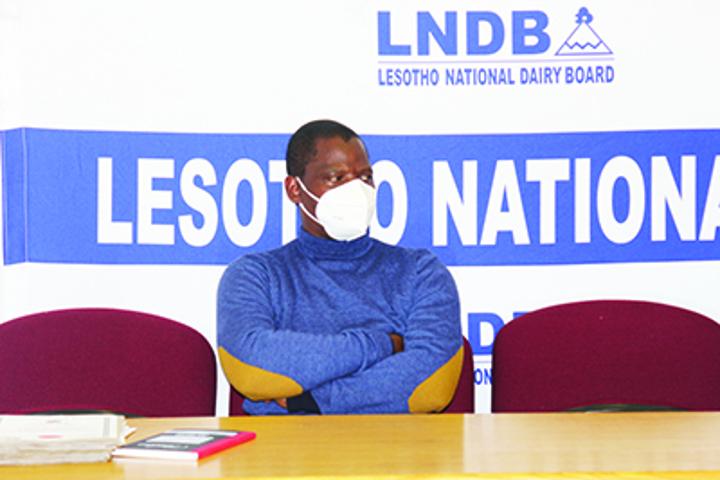Africa-Press – Lesotho. The Lesotho National Dairy Board (LNDB) hosted a two weeks’ Artificial Insemination (AI) training program through the National University of Lesotho (NUL) in an
effort to promote more inseminators in the country. The programme ended on Friday with a closing ceremony that had 26 students awarded certificates. Sponsored
by LNDB, these students had an opportunity to train at the NUL farm. LNDB Chief Executive Officer (CEO) Abiel Mashale stated that he is thankful that NUL
provided the opportunity for those inseminators to be trained in the campus. He also mentioned that LNDB was established to promote, develop and regulate the
dairy industry in Lesotho since 1991 and they have been working towards that mandate since then. “The first Artificial Insemination was on the 1st April 2018.
We had sent students to South Africa to train them to be inseminators but had come back without the knowledge, thus we have decided to train inseminators in the
country and our graduates are well groomed and are ready to go out in the industry as well as to train other people about AI. The board invested M55, 000
in the training and so far there have been 1400 cattle and 2000 plus calves produced through the artificial insemination process,” he noted. The NUL Dean under the department of Animal Science Professor Philip Dawuda
explained the process of AI and said that the purpose of training those students was to form a new group of inseminators in Lesotho. “We have decided to train these students about artificial insemination hoping that the
government will not spend money and time sending students to South Africa and yet they come back without the full knowledge of AI. We thoroughly trained these
students for 2 weeks and we are very proud of them because they turned out to be perfect inseminators,” he mentioned. Dawuda also said that the process of AI reduces expenses to buy a bull, saying a bull
wastes a lot of semen which is saved through this process. He also said that this is to reduce infections in animals that may be transferred from one animal
to another. “The semen has been diluted in order to inseminate at least a 100 more cows, a bull losses 20 million sperms with one ejaculation so using AI is
much safer and it saves,” Dawuda said. On behalf of the trainees, Reitumetse Nkoja said that they are very excited to have had the opportunity to train for AI and it is a privilege that she was
chosen to represent the Berea district. She noted that as a female to be a farmer comes from being determined and having a passion for animals. Nkoja said
she grew up herding cattle with her brothers and that had inspired her love for animals thus she went as far as being a part of trainees as well as studying Animal health and welfare at NUL.






